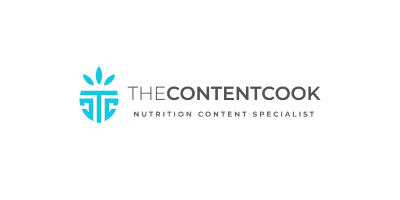Does Collagen Strengthen Connective Tissue in Muscle?
When we talk about getting stronger and building muscle, it’s not just about lifting more weight or getting bigger. It’s also about the health of our connective tissues — the bits that hold our muscles together. Collagen has been popping up everywhere as a must-have for muscle health, but what’s the real deal? Is it a game-changer for strengthening the web of tissue in our muscles, or is it just another trend? In this article, we’ll break down what collagen really does for our muscles and if it’s something you should consider adding to your routine.

The Interplay of Connective Tissue and Muscle Strength
The strength of our muscles isn’t just about the muscle fibers themselves; it hinges significantly on the muscle’s connective protein network. This network, essential for transmitting force, is in a constant state of flux — continuously breaking down and rebuilding, much like the muscle’s contractile and mitochondrial proteins.
Exercise, particularly resistance training, serves as a powerful catalyst for this cycle, significantly ramping up the synthesis of these proteins. The prevailing theory is that, over time, this accelerated cycle of degradation and renewal leads to a stronger connective protein network, mirroring the gains seen in muscle strength.
But here’s where collagen piques interest: as a primary component of this connective tissue, could increasing our collagen intake bolster this natural strengthening process? More importantly, can supplementing with collagen directly influence the recovery and fortification of this crucial network, contributing to a more resilient and powerful muscle structure? As we delve deeper, we’ll explore how collagen fits into this intricate puzzle of muscle recovery and adaptation.
Collagen vs. Whey: Unpacking the Research
Whey protein has long been hailed as the cornerstone of muscle recovery and growth. Its high biological value and rich amino acid profile, particularly leucine, have made it a favorite among athletes. But as we venture deeper into understanding our bodies, collagen protein emerges as a compelling character in the narrative of muscle health, particularly when we talk about the connective tissues that glue our muscles together.
Recent studies have put these two protein powerhouses head-to-head, aiming to decipher their individual impacts on our muscular system. While whey continues to assert its dominance in promoting rapid muscle protein synthesis, thereby aiding in muscle recovery and growth, collagen’s role appears more nuanced but equally vital.
Collagen’s unique amino acid composition, rich in glycine and proline, does not directly stimulate muscle protein synthesis like whey. However, it may play a role in reinforcing the connective tissue matrix within the muscle.
This connective tissue, comprising tendons and ligaments, is pivotal for transmitting the force generated by the muscles, thereby enhancing overall muscle strength and function.
The findings indicate that while whey protein significantly boosts myofibrillar protein synthesis (the process that leads to muscle growth), collagen supplementation could be instrumental in strengthening the muscle’s structural framework. This doesn’t just contribute to muscle health; it potentially reduces injury risk and improves long-term athletic performance.
So, what does current research truly say about collagen’s efficacy in strengthening connective tissue? Studies are increasingly revealing that regular collagen supplementation, particularly post-exercise, could aid in the recovery and strengthening of connective tissue. This, coupled with its anti-inflammatory properties, presents collagen as a valuable player in the comprehensive approach to muscle recovery and strength.
As we navigate through these findings, it’s becoming clear: the question isn’t about choosing between collagen or whey — it’s about understanding how each can play a specific role in the multifaceted approach to muscle health and recovery.
Exercise, particularly resistance training, serves as a powerful catalyst for this cycle, significantly ramping up the synthesis of these proteins. The prevailing theory is that, over time, this accelerated cycle of degradation and renewal leads to a stronger connective protein network, mirroring the gains seen in muscle strength.
But here’s where collagen piques interest: as a primary component of this connective tissue, could increasing our collagen intake bolster this natural strengthening process? More importantly, can supplementing with collagen directly influence the recovery and fortification of this crucial network, contributing to a more resilient and powerful muscle structure? As we delve deeper, we’ll explore how collagen fits into this intricate puzzle of muscle recovery and adaptation.
Translating Science into Practice
The landscape of protein supplementation and its impact on muscle recovery is complex and constantly evolving. Recent research comparing collagen and whey protein helps refine our nutritional strategies post-exercise, grounding them in scientific evidence.
Though whey protein remains the gold standard for initiating muscle protein synthesis post-workout, the narrative around collagen is more nuanced. Researchers have observed notable increases in the levels of glycine, proline, and hydroxyproline in the bloodstream following collagen supplementation. However, these elevated levels do not seem to translate into increased synthesis of connective tissue proteins within the muscles.
It’s important to note that while muscle connective tissues don’t show a significant response to collagen supplementation, other studies highlight potential benefits for tendons and bones. This discrepancy could be attributed to the inherently higher collagen content in these tissues—approximately 85%, compared to just 5% in muscle tissue. Therefore, the impact of collagen supplementation appears to be more pronounced in structures predominantly composed of collagen, like ligaments, tendons, and bones, rather than in muscle tissue itself.
Here’s how we can apply this knowledge:
- Prioritize Whey Protein Post-Workout: To effectively stimulate muscle protein synthesis and support recovery, include a high-quality source like whey protein after training sessions.
- Consider Collagen for Overall Support: Although collagen may not directly enhance the synthesis of connective proteins in muscles, its supplementation can still play a supportive role, especially for the health of bones and tendons, which contain more collagen.
- Debunking Myths: It’s time to debunk the myth that collagen can replace whey or other high-quality protein sources in the context of muscle recovery. Instead, collagen should be viewed as a supplementary nutrient, contributing to a well-rounded diet, especially beneficial for those with specific joint or connective tissue concerns.
- Practical Application: For those choosing to incorporate collagen into their regimen, timing may not be as critical as with whey protein. Collagen can be taken at any time of day, making it a flexible addition to one’s diet. There is a some evidence suggesting that pre-training is the best time when it comes to tendon health.
By separating fact from fiction and aligning nutritional strategies with the latest scientific evidence, we can guide individuals towards more informed, effective post-workout recovery practices. Remember, the goal is not just recovery but sustained health and performance, where both whey and collagen may have their unique places.
Conclusion
To wrap up, the journey through the latest research paints a clear picture: while whey protein effectively aids muscle recovery by enhancing muscle protein synthesis, collagen does not have the same impact on the synthesis of connective tissue proteins within muscles. However, this doesn’t diminish collagen’s value, especially given its role in supporting overall joint and bone health due to the higher collagen content in these areas compared to muscle tissue.
For those looking to optimize recovery and performance, the best approach combines targeted nutrition with comprehensive recovery strategies. Whey protein remains the recommended choice for immediate post-exercise muscle repair, while collagen supplements, though not directly enhancing muscle recovery, can contribute to the long-term health of the body’s connective frameworks.
Remember, individual needs and responses vary. It’s important to monitor how your body reacts to different recovery strategies and adjust your approach accordingly. Armed with the latest findings, you can make informed decisions that support both immediate recovery and long-term musculoskeletal health.



